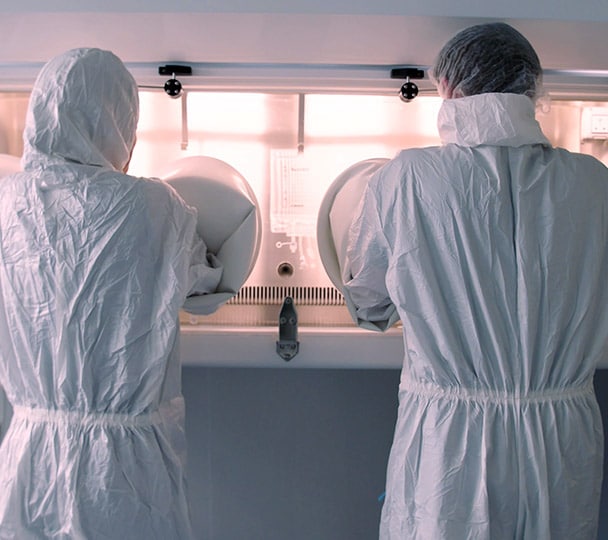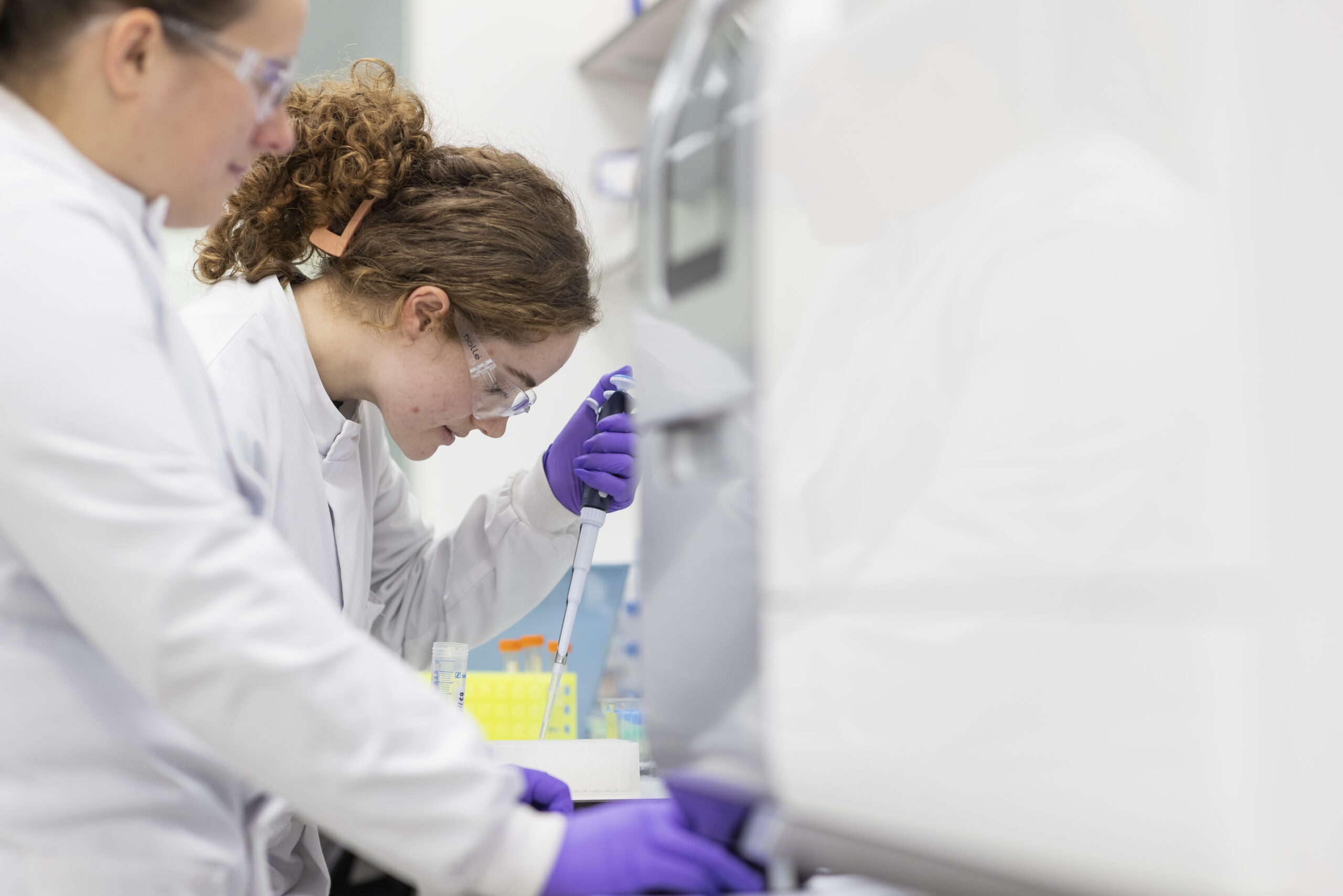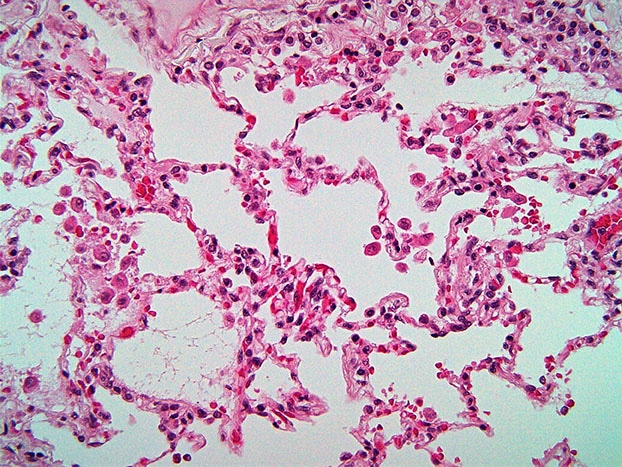A new multi-million pound research programme at the University of Edinburgh will develop treatments for lung infections, building on the success of groundbreaking projects funded by LifeArc to fight COVID-19.
The Baillie Gifford Pandemic Science Hub will use translational genomics – following clues from the human genome to identify and rapidly test new treatments – and experimental medicine methods to quickly evaluate and develop drugs for lung inflammation and injury caused by infection.
The new hub builds on the success of two experimental medicine projects – STOPCOVID and GenOMICC – led by scientists in Edinburgh. LifeArc supported both these initiatives early in the pandemic to help accelerate the search for new medicines to fight life-threatening lung disease in COVID-19.
The hub will accelerate discoveries from these groundbreaking projects to drive clinical translation in COVID-19 and other human lung diseases, and will help prepare for future pandemics.
From genes to drugs
In April 2020, LifeArc provided £2 million to the STOPCOVID project. At this very early stage in the pandemic, there were no clinically proven therapies available for COVID-19. Our funding enabled the team to quickly establish experimental medicine pathways to test existing and experimental drugs in patients to find a new treatment, and to accelerate technologies to deliver and measure drugs in human lungs.
We also contributed £5 million to generate sequencing data that was analysed by GenOMICC – a global consortium studying the genetic factors that change outcomes in critical illness. Our funding supported their work searching for key genetic variants involved in determining COVID-19 severity, to uncover vital new information to help select existing drugs to treat the disease and identify those most likely to develop life-threatening symptoms.
Early in the pandemic, the GenOMICC study found the first human gene – called TYK2 – that lead to a new drug treatment for an infectious disease. TYK2 was linked with severe illness in COVID-19 patients, suggesting the drug baricitinib would be an effective treatment. Combined with other evidence, this discovery led to the drug being added to the RECOVERY trial, which showed baricitinib could prevent people dying from severe COVID-19.
GenOMICC recently discovered a further 16 genes underlying severe COVID-19, which could lead to more treatments for the disease.
The launch of the new hub, which is supported by a philanthropic gift of £14.7 million from Baillie Gifford, will bring together expertise from both projects with critical care at the heart of the pathway.
Accelerating progress
The hub will combine Edinburgh’s world-class ability to determine a person’s genetic predisposition to lung injury with advanced interventional robotics for delivery, cutting-edge sensing and sampling technologies and innovative clinical trial design.
To discover new treatments faster, the team will deliver microdoses of multiple medicines to key areas of patients’ lungs to see if the drugs work on their own or in combination.
The constant risk of respiratory viruses, combined with the emergence of antibiotic resistance in respiratory diseases, means a radical new approach to streamlining drug development and evaluation is needed.
Part of this approach means the hub will harness the expertise of leading data scientists, roboticists, engineers, chemists, biologists, regulatory experts, drug developers, toxicologists, translational managers and clinicians at the University of Edinburgh.
LifeArc will continue to support the programme with our advice and diligence expertise in translational research.
Building on strong foundations
Dr Catriona Crombie, Associate Director of Technology Transfer at LifeArc said: “We’re thrilled to see that successful projects we funded early in the pandemic have led to this new Pandemic Science Hub being established. It will help ensure that COVID-19 knowledge gained will continue to be progressed, with a particular focus on identifying new treatments for people who remain vulnerable to the disease, such as those with compromised immune systems. It will also help the world be better prepared to meet the challenges of the next pandemic.”
Professor Kev Dhaliwal, STOPCOVID lead and Consultant in Respiratory Medicine at the University of Edinburgh said:”LifeArc’s rapid response, ongoing commitment and support for translational experimental medicine right at the start of the pandemic when speed was of the essence, enabled the team to get off the ground. The establishment of the new Pandemic Sciences Hub is testament to the translational foundations laid down here in Edinburgh BioQuarter with partners that will help develop new technologies and innovative treatments for respiratory infections that threaten lives today and be ready to tackle new challenges that emerge in the future.”
LifeArc’s wider funding for COVID-19
Our funding to support STOPCOVID and the GenOMICC COVID-19 study forms part of over £27 million we provided towards the search for new medicines and diagnostics to fight COVID-19, as well as mobilising our materials and our people to help the scientific community to tackle the pandemic.



